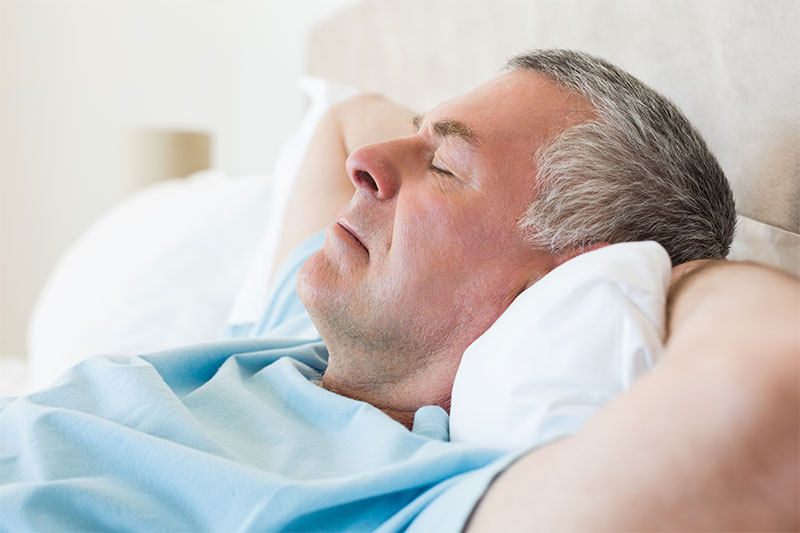Sleep! That is something that those who are in middle age and those who are elderly feel that they don’t get enough of even though they need it – like anyone else. However, too much sleep at the same time can have serious health consequences, even to the point of being worse than it would be if one did not get enough sleep. So the question is, how much sleep should someone who is middle age and elderly get? You hear a lot of conflicting studies on this fact.

Some say that you can get by on six hours of sleep, and others say you can be healthy enough if you get around nine hours of sleep. Children and teenagers need more sleep than the average adult. You also hear that it is ideal for the average adult to get anywhere from seven to eight hours of sleep. However, does that apply to those who are middle age or elderly?
Recommended Hours Of Sleep Are Different For Older People
The recommended hours of sleep for middle-aged to the elderly are somewhat different. Where you hear that those who are adults should get seven to eight hours of sleep is not the same for those who are middle-aged to elderly because eight hours is too much. The ideal number of hours of sleep that the middle-aged and elderly should get is seven hours.
Seven hours is ideal for those in this age bracket because if they get less or more sleep, they are more likely to face some health challenges. In addition, studies have shown that those in this age bracket who get fewer than seven or more seven hours of sleep are more likely to develop dementia as improper hours of sleep can increase cognitive decline. Getting the proper hours of sleep is also helpful for mental health.
Research has found that those in these age groups who do not get the right amount of sleep experience much more anxiety and depression. They also have worse well-being overall. However, it is essential to realize that the number of hours of sleep is only part of the equation for getting proper sleep. You have to take into consideration that the quality of sleep matters. For example, researchers have found that those who are from the ages of 38 to 73 through brain imagery, those who get seven hours of sleep had healthier brains than those who did not get enough or got too much. So sleep does have a significant impact on brain health. But let’s not forget the quality of sleep is just as essential as getting the correct number of hours.
Quality Is As Important As Quality Of Sleep
You will not do well if you do get seven hours of sleep but at the same time, keep tossing and turning and waking up every hour, even if it is for a few minutes. It is normal to have to go to the bathroom once a night, as that will not impact the quality of sleep. However, if you are not sleeping well, you are not truly getting seven hours of sleep.
To increase the quality of sleep, you will want to cut caffeine and not consume any past 2 pm, and also the same goes for alcohol. You will also want to read a book before bed instead of looking at screens as the screens will emit blue lights which will reduce your melatonin production. Meditation before bed is also a good idea, and that also means keeping your room as dark and comfortable as possible. Having healthy snacks such as almonds and cheese which can help increase melatonin levels before bed can be helpful too. If you are able to get seven hours of sleep that are of excellent quality, you will have much better brain health.


